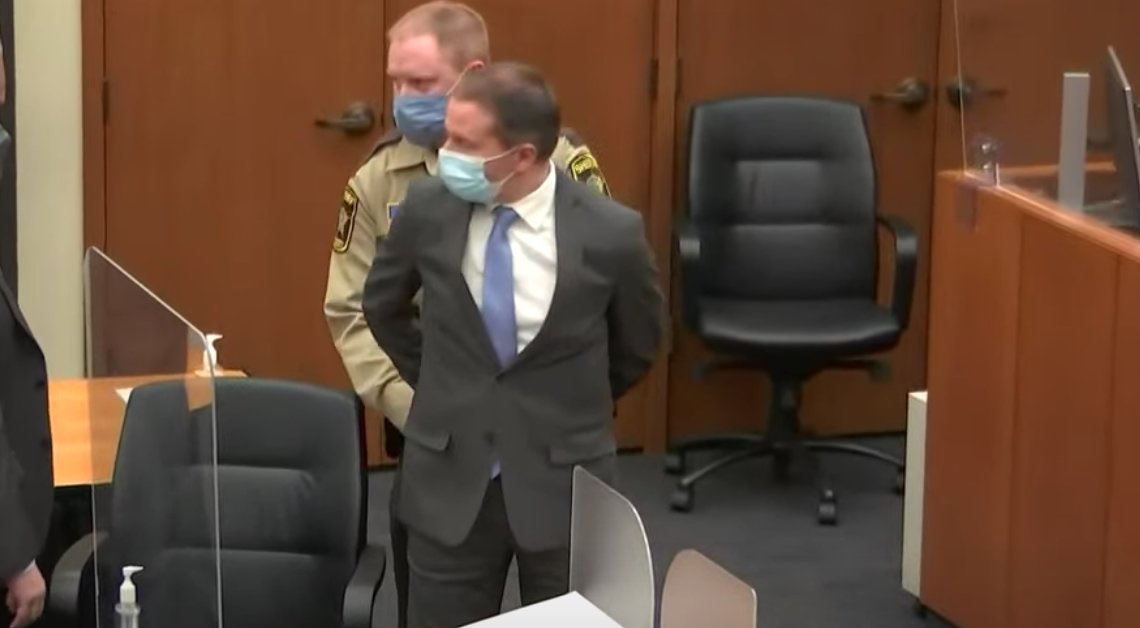Derek Chauvin, former Minneapolis police officer, has been convicted for the murder of George Floyd.
The jury at a Minnesota state court found Chauvin guilty on the three counts of murder levelled against him.
It is not immediately clear how many years he will be sentenced but CNN is reporting it could be more than 60 years.
His bail was also revoked, which means he will remain in jail until he is sentenced.
Advertisement
Chauvin was charged with unintentional second-degree murder, third-degree murder and second-degree manslaughter.
He had pleaded not guilty to all three charges.
WHAT DO THE CHARGES MEAN?
Advertisement
Manslaughter is when someone unintentionally causes another person’s death.
In second-degree murder, the act that led to someone’s death could have been intentional or unintentional. The maximum sentence for this charge is 40 years in prison.
Third-degree murder means that an individual has acted in a way that endangered one or more people, ending in death.
Police officers have rarely been convicted — if they are charged at all — for deaths that occur in custody, and the verdict in this trial has been widely seen as an indication of how the US legal system will treat such cases in future.
Advertisement
WHAT WAS THE CASE ABOUT AND WHAT WAS ARGUED IN THE TRIAL?
Floyd, an African American, died in May 2020 after Chauvin pinned him to the ground and knelt on his neck.
The former officer was arresting him for allegedly spending a counterfeit $20 note in a shop.
The video of the incident in which Floyd pleaded, “I can’t breathe,” went viral and sparked major protests within and outside the US.
Advertisement
An autopsy later confirmed that the cause of Floyd’s death was linked to pressure on his neck.
Chauvin was sacked from his job alongside three other officers involved in the incident.
Advertisement
During his trial, Steve Schleicher, Floyd’s lawyer, had talked about what he believed to be the deceased’s “desperate struggle” to lift his chest and fill his lungs with air.
He had also reminded the judges of Floyd’s last words: “Please, I can’t breathe.”
Advertisement
But Eric Nelson, the defence attorney, had argued that there is no evidence that Floyd’s airflow was restricted during his arrest.
“The use of force is not attractive, but it is a necessary component of policing,” he had said.
Advertisement
He had also said Chauvin “did exactly what he had been trained to do over the course of his 19-year career”.
Add a comment







